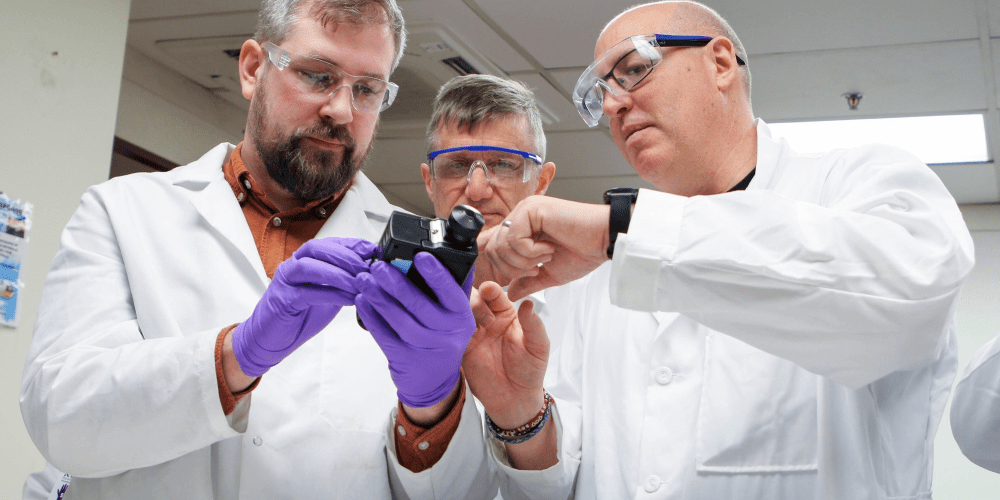DEVCOM CBC scientists completed four years of collaborative research with NATO partner nations on developing a better field sensor with a laboratory demonstration at its Aberdeen Proving Ground research campus in Maryland on March 7.
Operating under the NATO Sensors and Electronics Technology (SET) Panel, NATO-SET-292 “Enhanced Raman Spectroscopy for Defense Applications,” the effort resulted in the demonstration of a lightweight, fieldable modification that increases the sensitivity of handheld sensors by a thousand-fold for detecting chemical warfare agents, their breakdown products, and illicit drugs such as fentanyl.
The laboratory demonstration showed that this process of amplification can be used by warfighters in the field without increasing their load burden.
The handheld sensors used for the study are commercially available and commonly used portable Raman spectrometers that could be augmented with surface-enhanced Raman spectroscopy substrates, enabling a jump from only being able to identify bulk materials to identifying traces so small that they cannot even be seen with the naked eye.


